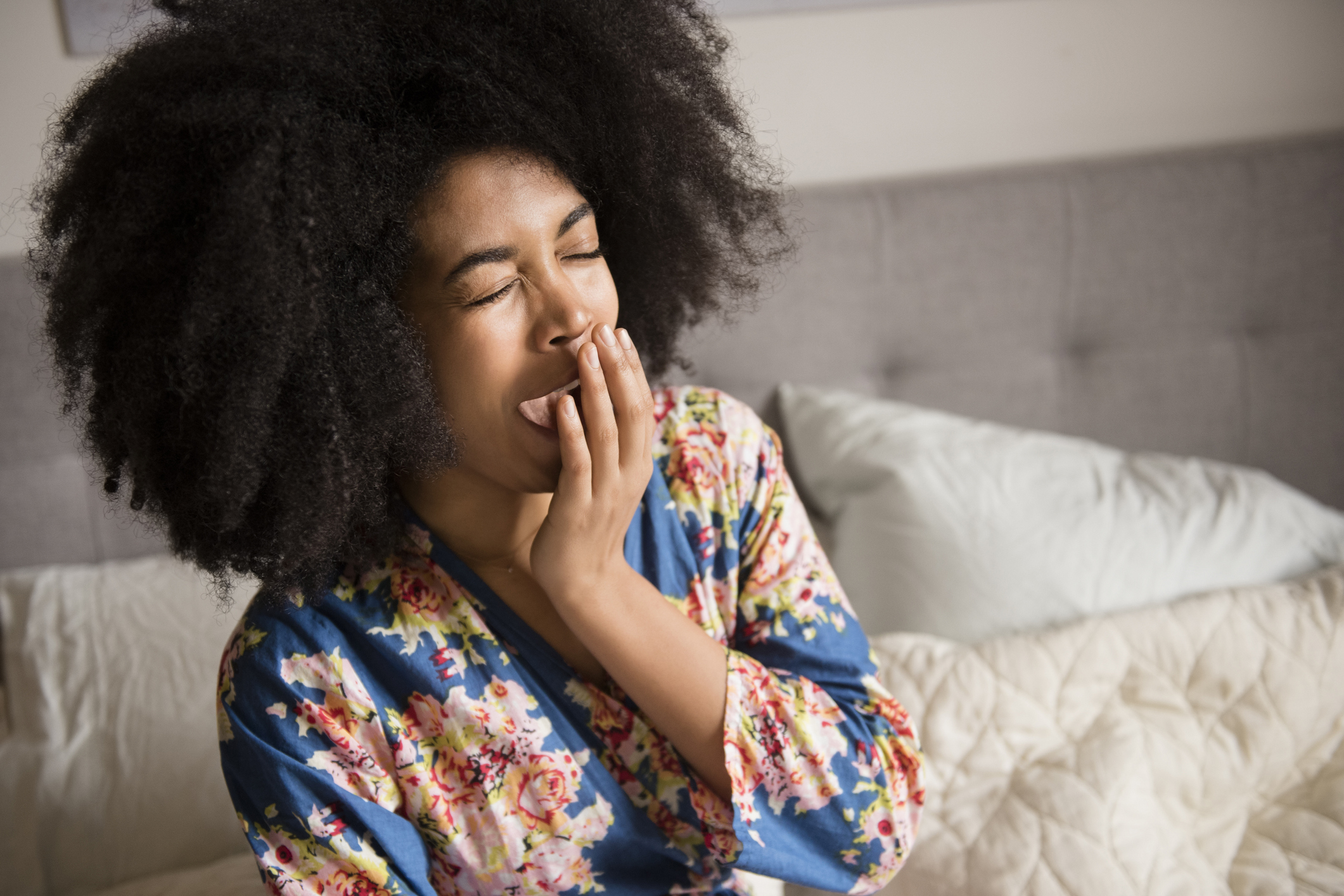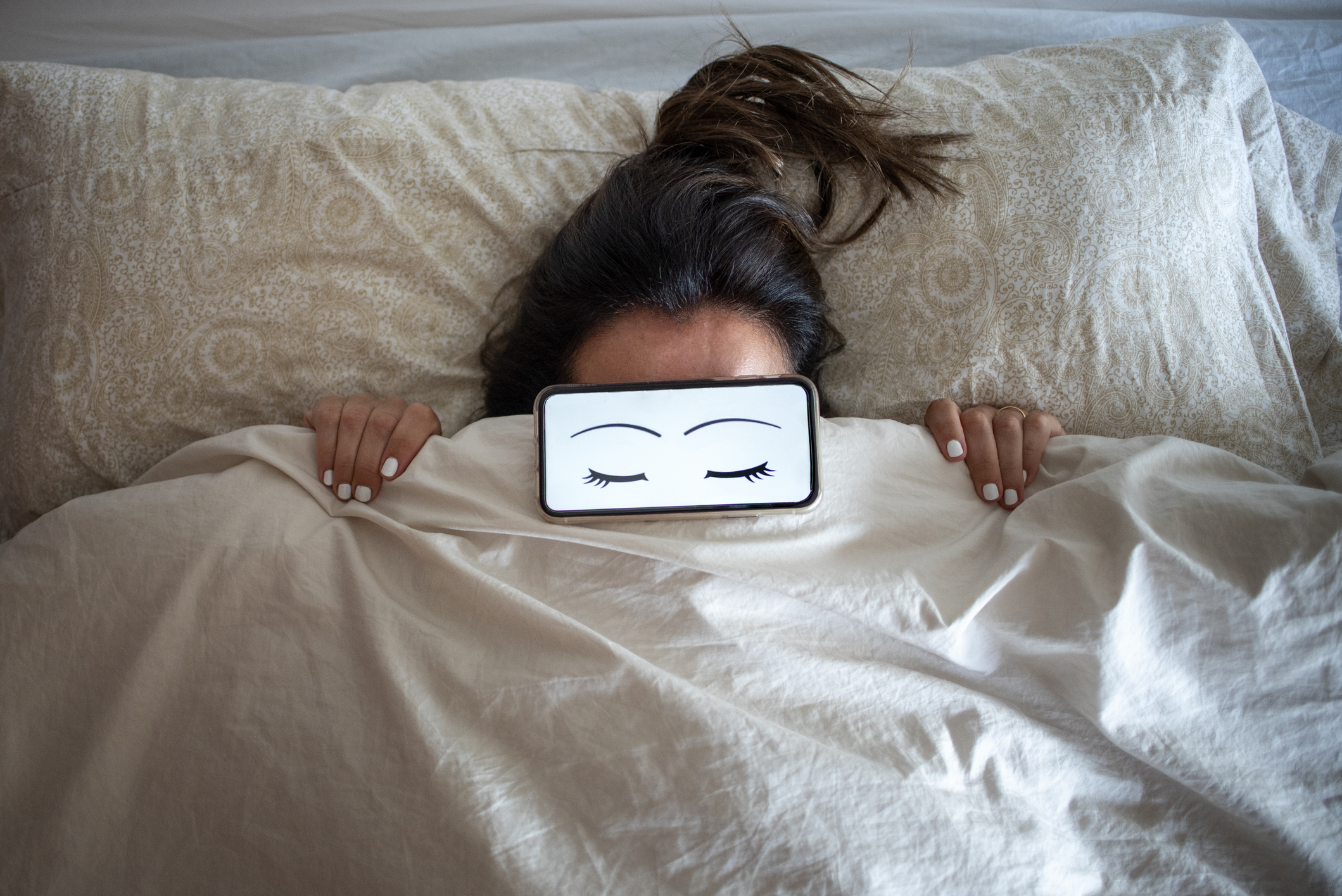How to get better sleep: tips and tricks for optimum shut-eye
From sleep apps to snooze aids, here's how to get better sleep every single night

If you go through your days feeling groggy, you've probably wondered how to get better sleep or at least more sleep on a regular basis. Work, school, family and household chores pack our daily schedules to the brim, and it can feel impossible to set aside eight hours per night to catch some much-needed zzz's. Thankfully, there are ways to optimize your sleep, like stocking up on the best sleep aid products or reading this very guide!
Consistently getting a full night of sleep is associated with lower rates of mental illness, better work and academic performance, fewer mood swings, fewer car accidents, and better decision-making. Not getting enough sleep, on the other hand, puts your mental and physical health at risk, as well as your social life and safety.
Do you struggle to get a proper rest every night? If that is the case for you, you aren't alone. These tips will help you get better sleep every night—from the best meditation apps to environmental recommendations, we’ve got you covered.
How to get better sleep by giving meditation a try
Often, the key for how to get better sleep at night is what you do when you're awake. Meditation has seen a major increase in popularity over the past few years, and for good reason: taking a few minutes to pause and focus on your breath, mentally send well wishes to others, or do a body scan can help us feel better both in the moment and in the long term.
Meditation is also associated with falling asleep faster, experiencing less insomnia, and feeling less tired overall. Aside from sleep benefits, meditation can help you feel less stressed and anxious throughout the day, leading many people to see improvements in high blood pressure and other stress-related health conditions.
Meditation can feel overwhelming to those who have not tried it before, and many people give up shortly after starting it because they feel lost and defeated. Fortunately, guided meditation can help keep your mind focused on the moment.

How to get better sleep with a sleep schedule
Bedtimes aren't just for toddlers! Aiming to slumber and wake at the same times every day, even on weekends or days off, can help your body adjust to a sleep routine. This can help you fall asleep faster and stay asleep longer. Staying up late and sleeping in on the weekends can disrupt this routine, leading you to suffer from fatigue for up to an entire week after.
Most people set an alarm to wake up in the morning, but very few people set an alarm to go to sleep. If you have difficulty establishing and maintaining a regular sleep schedule, try setting a reminder on your phone to start your nighttime routine. This can help you snap out of a Netflix binge or social media scrolling session, and instead set you up for a successful night of rest.
How to get better sleep by creating a sleep environment
One of the most important things you can do to get better sleep is to create an ideal sleeping environment that allows your body and mind to relax. The three major elements of an ideal sleep environment are temperature, sound and light.
- Temperature
Our bodies tend to have an easier time falling asleep in cooler temperatures, like what we would have had while sleeping outside in our hunter-gatherer days. You can either set your thermostat to a few degrees cooler at night, or you can use a fan to circulate air in your bedroom. According to the Sleep Foundation, the ideal temperature for sleep is about 65 degrees. - Sound
If you live by a busy street or have noisy neighbors, you know firsthand how much sound can affect your sleep. If you struggle to fall asleep because of a loud environment, there are several things you can do to drown out the outside noise.
Many people find that they like sleeping with a fan on, both to feel a breeze and to have a relaxing sound that helps muffle other noises. Others use white noise machines or white noise apps that play rain sounds or similar nature sounds. Earplugs can also be helpful in drowning out aural disturbances, especially if you share a bed with a loud snorer. - Light
Your body's circadian rhythm relies on the lightness and darkness of the surrounding environment. Darkness prompts your body to release melatonin, a hormone in your brain, which prompts other sleep mechanisms to kick in. Avoiding bright lights about an hour before bed, including electronics like TVs and cell phones, will stimulate your brain to release melatonin. Make sure your bedroom is dark enough when you actually go to bed, too: employ blackout curtains if you are near streetlights or work the night shift and sleep during the day.
If you try these strategies to get better sleep at night, but you still struggle to feel well-rested and alert upon rising in the morning, make an appointment with your doctor to discuss your sleep. Sleep plays a critical role in maintaining our physical and mental health, and it is not something you should continue to deal with if you struggle to fall asleep and stay asleep several nights per week.
The My Imperfect Life team is all about helping you navigate your world. We bring you the latest on fashion, beauty, travel and wellness so you can live life on your terms.